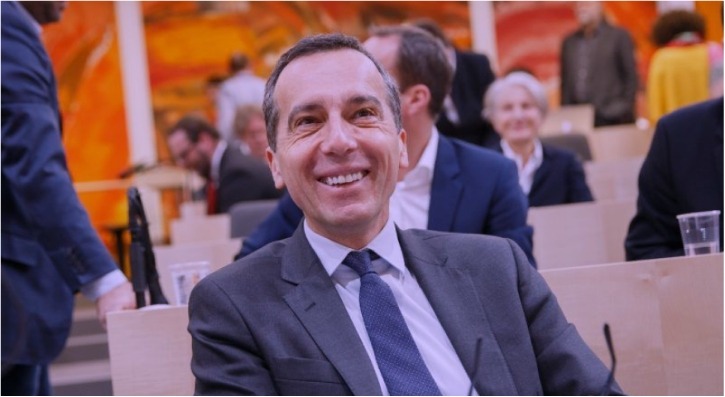
Former SPÖ chairman and Chancellor Christian Kern has taken responsibility for his part in the current problems of the party. In an interview with the Austrian news magazine “profil,” Kern admitted that his hasty resignation was partly to blame for the party’s issues, saying “Yes, that’s me.” He acknowledged that he understands the resentment and is sorry he cannot contradict it.
Kern became the leader of the Social Democratic Party of Austria (SPÖ) in 2016, but he resigned from his position after the party lost the parliamentary elections in 2017. Since then, the party has been struggling to regain its footing, facing internal conflicts, declining poll numbers, and growing competition from other parties.
Kern’s admission comes as the SPÖ prepares for a member survey to select its new leader. The survey is seen as a crucial step for the party to rebuild its support and regain its relevance in Austrian politics. However, the process has been fraught with controversy and criticism, with some accusing the party of not providing clear rules and others questioning the validity of the results.
In the interview, Kern criticized the member survey, calling it a “crazy process” that lacks clear rules. He explained that some want the survey, while others are doing everything possible to make it look ridiculous. Kern’s comments reflect the growing frustration among many SPÖ members about the party’s internal divisions and the lack of a clear path forward.
Despite his criticism of the survey, Kern said he would not be participating in the process, citing his desire to avoid further controversy and focus on his work outside of politics. Kern is now the CEO of the Austrian Federal Railways, a position he has held since 2018.
Kern’s admission of responsibility is significant because he is a prominent figure in Austrian politics and a respected voice within the SPÖ. His comments could help the party to move forward by acknowledging its problems and taking steps to address them.
However, the SPÖ still faces significant challenges in the months ahead. The party’s poll numbers have been declining for years, and it has struggled to attract younger voters and compete with newer parties like the Greens and the liberal NEOS.
Moreover, the SPÖ is facing growing competition from the far-right Freedom Party of Austria (FPÖ), which has been gaining support in recent years by appealing to anti-immigrant and Eurosceptic sentiments. The FPÖ is now the third-largest party in Austria, and some analysts predict that it could become a major force in the country’s politics in the coming years.
To counter the FPÖ’s rise, the SPÖ needs to find a way to reconnect with its base and appeal to a broader range of voters. This will require the party to address its internal divisions, develop a clear policy platform, and present a compelling vision for the future of Austria.
Kern’s comments could be an important step in this direction, but they will need to be followed by concrete actions and a genuine effort to rebuild the party from the ground up. The member survey could be an opportunity for the SPÖ to do this, but it will need to be conducted in a fair and transparent manner that inspires confidence among party members and the broader public.
